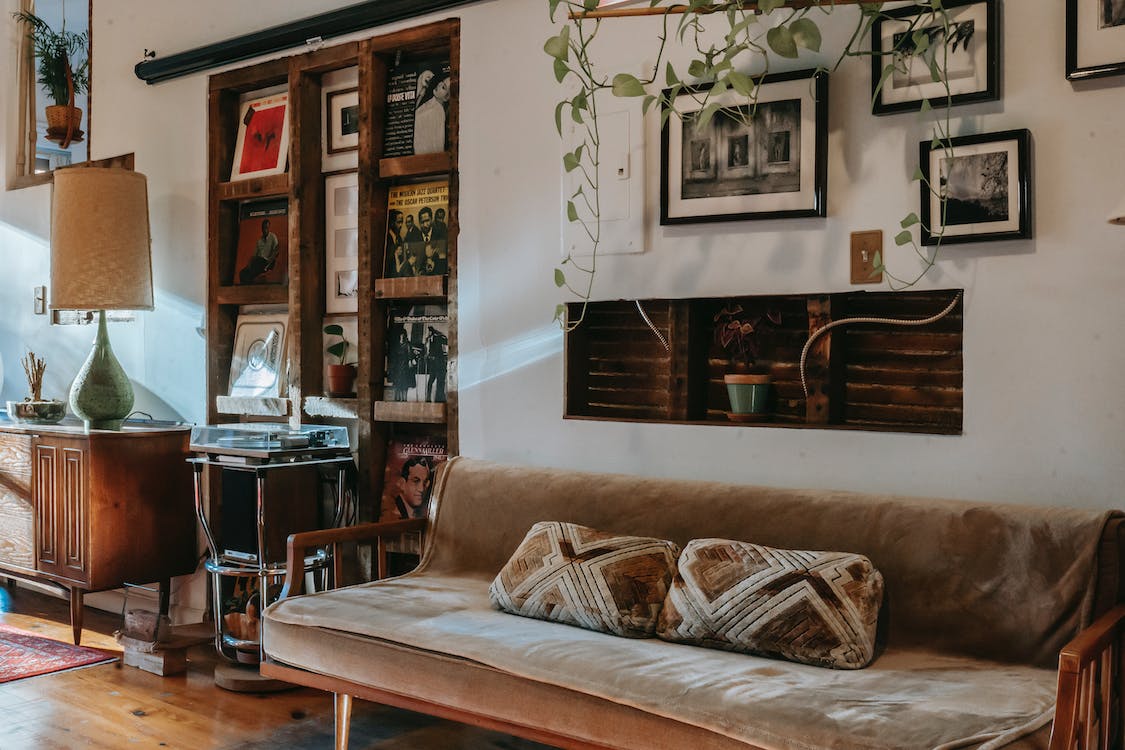Welcome to the world of minimalism, a lifestyle choice that is gaining popularity for its numerous benefits. In a world that bombards us with constant stimulation and material possessions, minimalism offers a refreshing approach to living. It’s not just about decluttering your physical space; it’s also about decluttering your mind and finding more meaning in life.
The Benefits of Minimalism in 2024
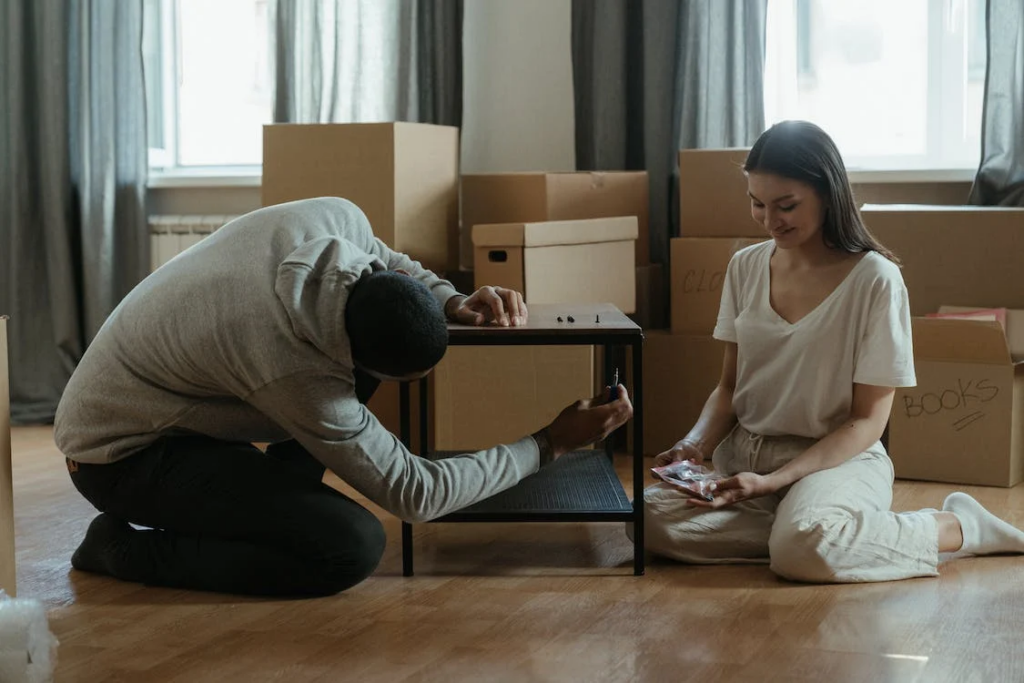
Minimalism is about prioritizing what truly matters to you and eliminating the excess that weighs you down. By simplifying your surroundings, you can create a sense of peace, clarity, and focus. In this article “The Benefits of Minimalism in 2024 : Decluttering Your Mind and Space”, we will explore the benefits of minimalism and how it can transform your life for the better.
So, if you’re ready to embark on a journey of simplicity, let’s dive into the science-backed advantages of embracing minimalism.
Scientific Backing of Minimalism
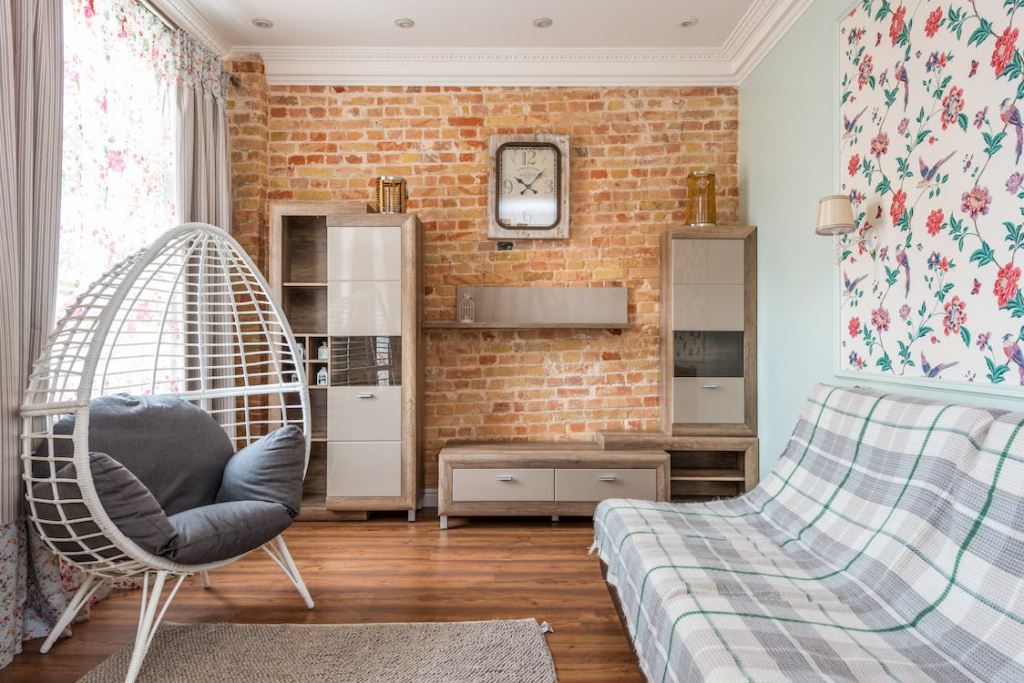
In recent years, minimalism has gained significant popularity as a lifestyle choice. People are embracing the idea of living with less and simplifying their surroundings. While minimalist aesthetics might be visually appealing, there is more to this lifestyle than meets the eye. Minimalism has been supported by scientific research, providing numerous benefits that go beyond just the aesthetic appeal. Let’s explore some of the scientific backing for embracing minimalism:
Less Stress and Anxiety
One of the key benefits of adopting a minimalist lifestyle is the significant reduction in stress and anxiety levels. Research has shown that clutter and excessive possessions in our living spaces can contribute to feelings of overwhelm and mental strain. By decluttering and owning fewer items, we create an environment that fosters calmness and tranquility.
Increased Productivity and Focus
Living in a clutter-free environment has been shown to increase productivity and improve focus. A study conducted at Princeton University found that a cluttered environment adversely affects attention and cognitive function, while an organized and minimalist space promotes clearer thinking and efficient decision-making. By eliminating distractions and streamlining our physical surroundings, we can enhance our ability to stay focused and accomplish tasks more effectively.
Financial Benefits
Minimalism can also have significant financial benefits. When we embrace minimalism, we start to prioritize quality over quantity, and our consumption habits change. We become more mindful of our purchases, avoiding unnecessary spending on items that do not add value to our lives. This shift in mindset leads to savings in the long run, allowing us to allocate our financial resources towards experiences and meaningful possessions instead.
Reduced Cleaning and Tidying
Owning fewer possessions means less time spent on cleaning and tidying. A study published in the Journal of Marketing Research found that clutter can make it more difficult for people to clean and organize their homes, resulting in a negative impact on overall well-being. Minimalism promotes simplicity and intentional living, which translates to fewer items to clean, organize, and maintain. This not only saves time but also reduces the mental and physical effort required to keep our living spaces tidy.
In conclusion, the scientific backing for minimalism is clear. It offers a wide range of benefits, from reducing stress and anxiety to increasing productivity, improving focus, and bringing financial savings. By embracing minimalism, we can create a more harmonious and balanced lifestyle that allows us to focus on what truly matters. So, why not give minimalism a try and experience the positive effects it can have on your life?
Improved Happiness and Well-being
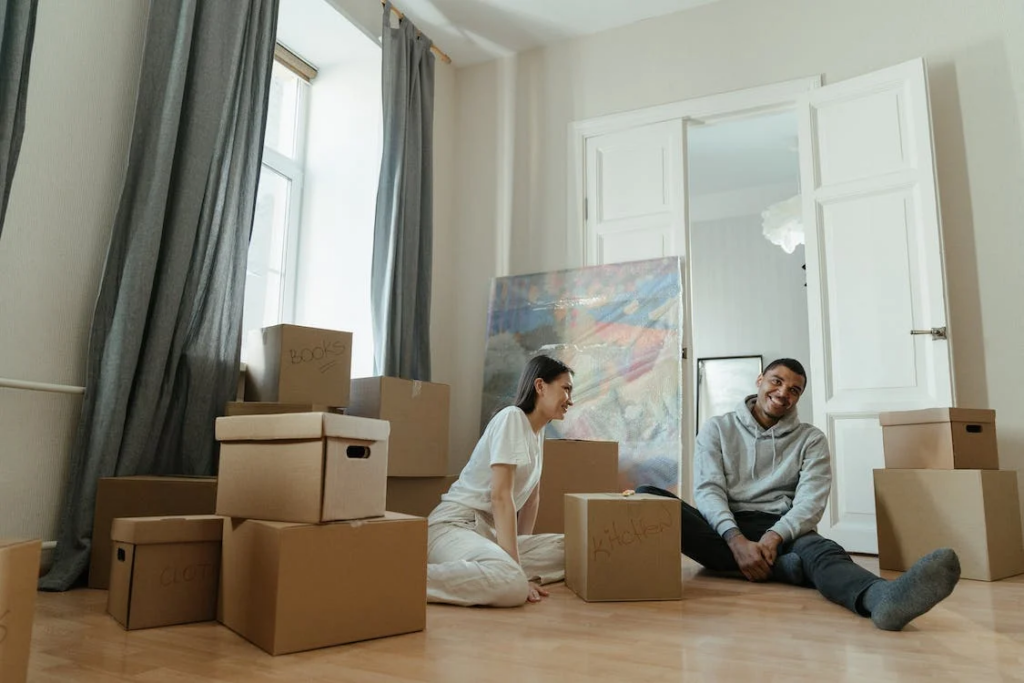
Are you looking to enhance your happiness and well-being? Consider embracing minimalism! Minimalism is more than just a design trend; it’s a way of life that can have a profound impact on your overall sense of contentment and fulfillment. Let’s take a closer look at how adopting a minimalist lifestyle can contribute to a happier and more meaningful existence.
Happier Living
According to a survey conducted by the Simplicity Institute, a staggering 87% of respondents reported being happier after embracing minimalism. By decluttering their living spaces and eliminating excess possessions, individuals experienced a newfound sense of freedom and lightness. Instead of being burdened by material possessions, they found joy in simplicity and the freedom that comes with it.
Benefits for Others
Minimalism not only benefits your own well-being but also has positive effects on those around you. Donating unused items can benefit those in need, promoting a sense of altruism and empathy. By letting go of the attachment to material possessions, you can create space in your life for more meaningful connections and experiences.
Clarity of Thought
Living in a clutter-free environment promotes an organized and focused mindset. Minimalism encourages you to prioritize what truly matters in life and eliminate distractions. By reducing visual clutter, you can experience improved clarity of thought and enhance your ability to concentrate on what truly brings you happiness and fulfillment.
Sense of Control
One of the significant benefits of minimalism is the sense of control it gives you over your life. When you have fewer possessions and commitments, you have more freedom to choose how you spend your time and resources. Instead of being controlled by the demands of consumerism and materialism, you can intentionally design a life that aligns with your values and priorities.
Reduction of Environmental Impact
In addition to the personal benefits, minimalism also has a positive impact on the environment. By consuming fewer products and producing less waste, you are actively contributing to reducing your environmental footprint. This sustainable approach to living aligns with the growing movement towards eco-consciousness and can provide a sense of fulfillment by knowing that you are making a difference.
So, if you are seeking to improve your overall happiness and well-being, consider embracing minimalism. By decluttering your life, practicing intentional living, and focusing on what truly matters, you can experience a deeper sense of contentment, clarity, and joy. Start small, and gradually incorporate minimalist principles into different areas of your life. Before you know it, you’ll be reaping the benefits of a more minimalist lifestyle.
Improved Mental Health

Are you looking for a way to improve your mental health and well-being? One effective approach that you may not have considered is adopting a minimalist lifestyle. Minimalism is not just about decluttering your physical space; it can also have a significant impact on your mental well-being. In this section, we will explore how embracing minimalism can lead to improved mental health.
Reduced Stress and Anxiety
Minimalists experience less stress and anxiety, leading to improved mental health. By simplifying your life and eliminating excess possessions, you can reduce the overwhelming feeling of being surrounded by clutter. Studies have shown that clutter can contribute to elevated levels of cortisol, the stress hormone. By reducing clutter and living in a more organized environment, you can create a serene and calming atmosphere that helps to alleviate stress and anxiety.
Enhanced Happiness and Fulfillment
A clutter-free life results in increased happiness and fulfillment. When our physical spaces are cluttered, it can be challenging to focus and find joy in our surroundings. By decluttering and only keeping items that truly bring us joy and serve a purpose, we can create a more intentional and meaningful living space. This intentional approach to our belongings can lead to a greater sense of gratitude and contentment, ultimately enhancing our happiness and fulfillment.
Clutter-free Mind
Decluttering helps in achieving a clutter-free mind, promoting peace of mind and overall well-being. Our physical environment greatly impacts our mental state. When we are surrounded by chaos and clutter, it can be challenging to find a sense of calm. Minimalism encourages us to simplify our possessions, which in turn helps to declutter our minds. By reducing the mental load that comes with excessive belongings, we can achieve a clearer and more focused mind. This clarity and peace of mind contribute to overall well-being and improved mental health.
Peace of Mind and Well-being
Living in a clean and organized environment positively impacts mood and mental health. When our environments are clean and organized, we can experience a sense of peace, tranquility, and overall well-being. A clutter-free space allows us to be more present and mindful, reducing distractions and enhancing our ability to focus on what truly matters. This sense of order and harmony can greatly contribute to our overall mental health and well-being.
In conclusion, adopting a minimalist lifestyle can have profound effects on our mental health. By reducing stress and anxiety, enhancing happiness and fulfillment, achieving a clutter-free mind, and promoting peace of mind and well-being, minimalism offers a holistic approach to improving our mental well-being. So, why not consider embracing minimalism and experience the transformative benefits it can bring to your life?
Environmental Impact and Sustainability

Introduction
In our modern world, the need for environmental impact and sustainability has become increasingly important. As our planet faces various challenges, it is vital that we take steps to preserve our resources, reduce waste and carbon emissions, and embrace sustainable consumption. One lifestyle that aligns with these goals is minimalism. By adopting a minimalist lifestyle, individuals can make a positive impact on the environment and contribute to a more sustainable future.
Preservation of Resources
One of the main benefits of minimalism is its contribution to the preservation of resources. By embracing minimalism, individuals shift their focus from material possessions to experiences and meaningful connections. This shift in mindset leads to a decreased demand for products, which in turn reduces the consumption of valuable resources. Here are some ways in which minimalism supports the preservation of resources:
- Reduced Consumption: Minimalists prioritize only purchasing items that they truly need and find value in. This intentional approach to consumption helps minimize the demand for resources such as raw materials, energy, and water.
- Longer Product Lifespan: Minimalists tend to invest in high-quality, durable products that are built to last. By choosing quality over quantity, they minimize the need for frequent replacements, reducing the overall resource consumption.
- Sharing and Borrowing: Minimalists often embrace community-based sharing initiatives and borrowing resources instead of buying new ones. By sharing tools, books, and other items, minimalists reduce the need for multiple individuals to own the same item, effectively conserving resources.
Reduction of Waste and Carbon Emissions
Another significant environmental benefit of minimalism is the reduction of waste and carbon emissions. Minimalists prioritize living with less, which leads to less waste generated both in the production process and in their daily lives. Here’s how minimalism helps reduce waste and carbon emissions:
- Decluttering and Donating: Minimalists regularly declutter their living spaces, identifying possessions they no longer need. Instead of throwing these items away, minimalists opt to donate or sell them, extending the lifespan of the products and reducing overall waste.
- Conscious Packaging and Shopping: Minimalists carefully consider packaging when making purchases and opt for products with minimal or recyclable packaging. By being mindful of packaging waste, minimalists reduce their contribution to landfills and the carbon emissions associated with its disposal.
- Reduced Energy Consumption: Living with less means minimalists use fewer appliances, electronics, and other energy-consuming devices. By reducing their energy consumption, minimalists lower their carbon footprint and contribute to the fight against climate change.
Sustainable Consumption
The minimalist lifestyle promotes sustainable consumption, a key factor in environmental impact and sustainability. Minimalists focus on making conscious choices that prioritize long-term sustainability over short-term satisfaction. Here’s how minimalism encourages sustainable consumption:
- Repair and Repurpose: Rather than replacing broken items, minimalists approach repairs. They embrace the idea of fixing what is broken, repurposing items, and finding creative ways to extend the lifespan of their belongings.
- Thoughtful Decision-making: Minimalists carefully consider their purchases, evaluating the environmental impact of each item. They seek out environmentally friendly alternatives, such as sustainable materials, ethical manufacturing practices, and products that have a minimal impact on the environment.
- Avoiding Excess: By living with less, minimalists avoid unnecessary excess and overconsumption. They prioritize experiences and quality over quantity, focusing on what truly brings value and avoiding the need for constant upgrading or accumulation.
In conclusion, minimalism offers a pathway towards environmental impact and sustainability. Through the preservation of resources, reduction of waste and carbon emissions, and the promotion of sustainable consumption, minimalists can make a positive difference in the world. By adopting a minimalist lifestyle, individuals can contribute to a more sustainable future for our planet.
Also Read: Maximizing Space in a Minimalist Home : Organizational Tips and Tricks in 2024.
Time and Productivity
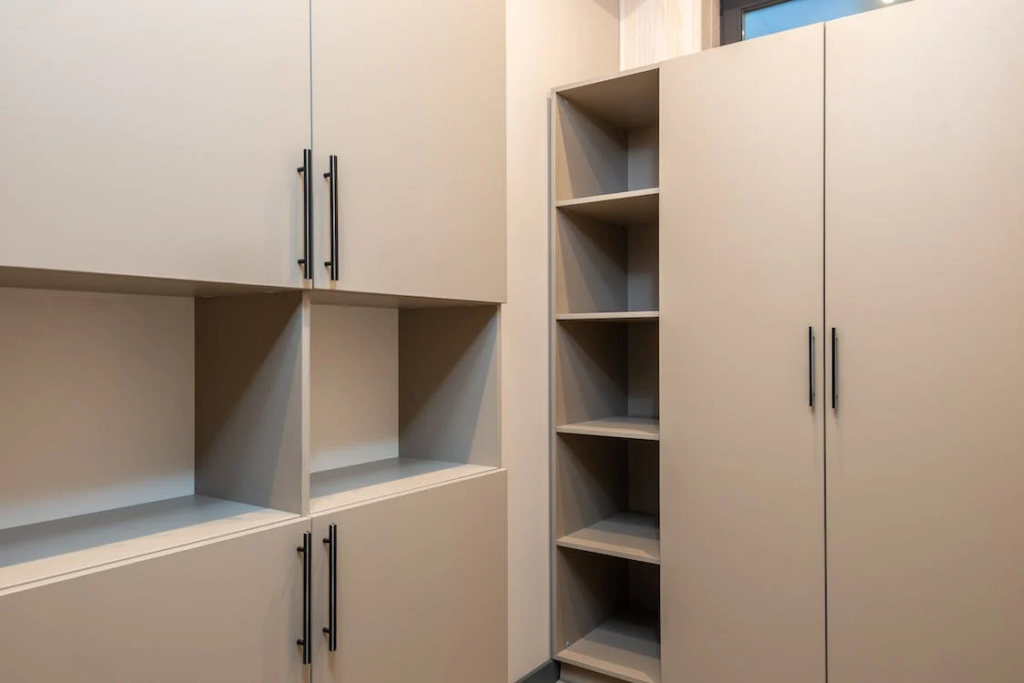
Do you ever find yourself feeling overwhelmed by the endless to-do lists and constant demands on your time? In today’s fast-paced world, it’s easy to get caught up in the never-ending cycle of work, obligations, and responsibilities, leaving us feeling burnt out and drained.
But what if there was a way to reclaim your time and boost your productivity? What if you could find a simple yet effective solution to help you prioritize what truly matters and eliminate unnecessary distractions?
Enter minimalism – a lifestyle that encourages simplifying your surroundings and focusing on what brings you joy and fulfillment. While minimalism may be commonly associated with decluttering physical spaces, its benefits extend far beyond a tidy home. By adopting a minimalist mindset, you can unlock the potential for increased productivity and more meaningful use of your time.
Pursuit of Interests and Hobbies
One of the significant advantages of practicing minimalism is the ability to prioritize your interests and hobbies. By decluttering your life and eliminating unnecessary distractions, you create more room for the things that truly matter to you. Here’s how minimalism can help you pursue your passions:
- Greater time availability: When you have fewer possessions and commitments, you naturally have more time and flexibility. Instead of spending hours organizing and managing your belongings, you can dedicate that precious time to activities that bring you joy.
- Clearer priorities: Minimalism helps you identify what truly matters in your life. By removing the distractions of excess stuff, you gain a clearer understanding of your interests and goals. This clarity allows you to focus your time and energy on the activities that align with your values and bring you genuine satisfaction.
- Streamlined decision-making: With fewer options and less clutter in your life, decision-making becomes simpler and more efficient. Instead of being overwhelmed by choice, you can make deliberate decisions that align with your passions and values, leading to a more fulfilling use of your time.
Improved Mental Clarity and Creativity
Living with less clutter not only has a positive impact on your physical space but also on your mental well-being. Here’s how minimalism can enhance your mental clarity and unleash your creativity:
- Reduced mental load: Our environment greatly influences our mental state. Clutter and disorganization can create mental chaos and overwhelm. By decluttering and embracing minimalism, you create a calm and peaceful space that allows your mind to declutter as well, leading to improved focus and mental clarity.
- Enhanced creativity: Minimalist surroundings provide a blank canvas for creative expression. With fewer distractions and a simplified environment, your mind is free to wander and explore new ideas. Studies have shown that minimalism can stimulate creativity and spark innovative thinking, opening up new avenues for problem-solving and inspiration.
Incorporating minimalism into your life can be a game-changer when it comes to reclaiming your time and boosting your productivity. By simplifying your surroundings, you create space for the activities and pursuits that truly bring you joy and fulfillment. Additionally, living with less clutter can improve your mental clarity and tap into your creative potential.
So why not give minimalism a try? Start by decluttering one area of your life, whether it’s your physical space or your digital clutter. You’ll be amazed at how this simple mindset shift can lead to a more productive and meaningful use of your time. Happy decluttering!
Financial Freedom and Quality of Life

Financial freedom is a goal that many people strive for. The ability to live a life free from financial constraints and have the flexibility to pursue one’s passions and dreams is a dream shared by many. However, achieving financial freedom is not just about accumulating wealth and possessions. It involves making conscious choices and adopting a mindset that prioritizes experiences over material possessions.
Focus on Experiences over Possessions
In a society that often equates material wealth with success, it’s easy to fall into the trap of thinking that owning more things will lead to happiness. However, minimalism offers a different perspective. By embracing a minimalist lifestyle, individuals can shift their focus from accumulating possessions to collecting experiences and creating meaningful memories.
Living with less clutter allows us to be more intentional with our choices. Instead of spending money on things that bring temporary satisfaction, we can invest in experiences that have a lasting impact on our well-being and personal growth. Whether it’s traveling to new destinations, trying out new hobbies, or spending quality time with loved ones, these experiences enrich our lives in ways that material possessions cannot.
Minimalism encourages us to question the societal norms that tell us we need to constantly consume and acquire more. By letting go of the need for excessive possessions, we reduce our financial burdens and gain the freedom to allocate our resources towards what truly matters to us. This intentional approach to spending not only helps us save and invest wisely but also cultivates a sense of fulfillment and contentment that can’t be found in material possessions alone.
Stress Reduction and Simplified Decision-making
Living a minimalist lifestyle also has significant benefits for our mental health and overall well-being. As we declutter our physical spaces and simplify our lives, we remove the unnecessary distractions and noise that can contribute to feelings of stress, overwhelm, and anxiety.
A clutter-free environment promotes a sense of calm and tranquility. It allows us to create spaces that are conducive to relaxation, focus, and creativity. When our physical surroundings are in order, our minds become clearer, enabling us to make better decisions and prioritize what truly matters to us.
Moreover, a minimalist lifestyle simplifies decision-making. With fewer possessions, we are faced with fewer choices, leading to less decision fatigue. This, in turn, allows us to have more mental energy and bandwidth to focus on the things that bring us joy and fulfillment.
In summary, minimalism offers a path to financial freedom by encouraging us to prioritize experiences over possessions. By living with less clutter, we reduce stress, simplify decision-making, and enhance our overall quality of life. So, let go of the excess, embrace minimalism, and start creating a life that is truly rich in experiences and free from financial burdens.
Improved Relationships

Stronger Relationships and Family Time
In our fast-paced, modern lives, it’s easy to get caught up in the hustle and bustle of everyday activities. Between work, school, and numerous obligations, it can feel like there’s no time left for the things that truly matter, such as building strong relationships and spending quality time with family. This is where minimalism comes in.
Minimalism, with its focus on intentional living and simplifying our lives, can have a profound impact on our relationships. By decluttering our physical and mental spaces, we create room for deeper connections with our loved ones. Here’s how minimalism helps in building stronger relationships and spending more time together as a family:
- Reduced distractions: In a minimalist lifestyle, we eliminate the excess, allowing us to declutter our minds and focus on what’s truly important. With fewer distractions, we become more present and engaged when spending time with our family members. Simple activities like playing board games, cooking together, or having heartfelt conversations become more meaningful without the constant noise of clutter and distractions.
- Clearer priorities: Minimalism encourages us to identify our core values and priorities. By intentionally curating our lives, we gain clarity on what truly matters to us. This clarity in turn helps us make conscious decisions about how we spend our time and energy. We can prioritize spending quality time with our loved ones and create lasting memories rather than being consumed by material possessions and external pressures.
- Shared experiences: By embracing a minimalist lifestyle, we shift the focus from acquiring things to creating experiences. We prioritize shared moments and adventures with our family. Minimalism encourages us to invest in experiences rather than accumulating material possessions. Whether it’s going on a hike, exploring a new city, or simply enjoying a meal together, these shared experiences bring us closer and strengthen our bond as a family.
- Increased communication: Minimalism encourages open and honest communication within the family. By decluttering our lives, we create an environment that fosters meaningful conversations. When we simplify our material possessions, we also simplify our lives, giving us more time and mental space to engage in deep and meaningful conversations with our loved ones.
Incorporating minimalism into our lives can have a transformative effect on our relationships. It allows us to focus on what truly matters, create deeper connections, and spend more quality time together as a family. By embracing intentional living and letting go of excess, we can cultivate stronger relationships and create a more fulfilling family life.
Also Read: Organizing Small Spaces in 2024 : Minimalist Storage Solutions for First-time Homeowners.
Conclusion
In conclusion, embracing minimalism in both your physical and mental spaces can bring a multitude of benefits to your life. By decluttering your home and your mind, you can experience reduced stress and anxiety, increased productivity and focus, financial benefits, and reduced cleaning and tidying tasks.
But the advantages of minimalism go beyond just personal gain. Adopting a minimalist lifestyle can lead to improved happiness and well-being, as you learn to live with less and prioritize what truly matters. It allows clarity of thought, a sense of control, and a reduction of environmental impact.
Minimalism also has positive effects on your mental health, providing a clutter-free mind, enhanced happiness and fulfillment, peace of mind, and overall well-being.
Moreover, minimalism promotes environmental sustainability by preserving resources, reducing waste and carbon emissions, and encouraging sustainable consumption practices.
Time and productivity are also enhanced through minimalism, allowing you to pursue your interests and hobbies, as well as improved mental clarity and creativity.
Financial freedom and a higher quality of life can be achieved by focusing on experiences rather than material possessions, leading to stress reduction and simplified decision-making.
And let’s not forget about the impact minimalism has on relationships, as it promotes stronger bonds and encourages more quality time with loved ones.
In summary, minimalism offers a holistic approach to living a more mindful and fulfilling life. So why not start decluttering and embracing the minimalist lifestyle today?
To get access to more information and inspiring ideas, read Bathroom Storage Hacks : Maximizing Space without Sacrificing Style in 2024.
For more guidance on decluttering, selecting clean-lined furniture, and creating a calming and clutter-free living space, visit Minimalist Home Guru.
Frequently Asked Questions
- What is minimalism?
Minimalism is a lifestyle that focuses on simplicity and reducing clutter, both in physical and mental spaces. It involves intentionally owning fewer possessions, decluttering, and prioritizing what truly matters. - What are the benefits of minimalism?
Benefits of minimalism include reduced stress, increased focus, improved productivity, enhanced mental clarity, better organization, financial savings, and the ability to appreciate and value experiences over material possessions. - How can minimalism help declutter the mind?
Minimalism helps declutter the mind by eliminating distractions and excess, allowing individuals to focus on what truly matters to them. It promotes mindfulness, reduces anxiety, and creates a sense of calm and clarity. - How can minimalism help declutter physical spaces?
Minimalism helps declutter physical spaces by encouraging individuals to let go of unnecessary possessions, organize their belongings efficiently, and create a clean and minimalist environment that promotes a sense of peace and tranquility. - Is minimalism for everyone?
Minimalism is a personal choice and lifestyle that may not be suitable for everyone. However, anyone can benefit from incorporating minimalist principles into their life, even in small ways, to reduce stress and create a more organized and mindful living space.

